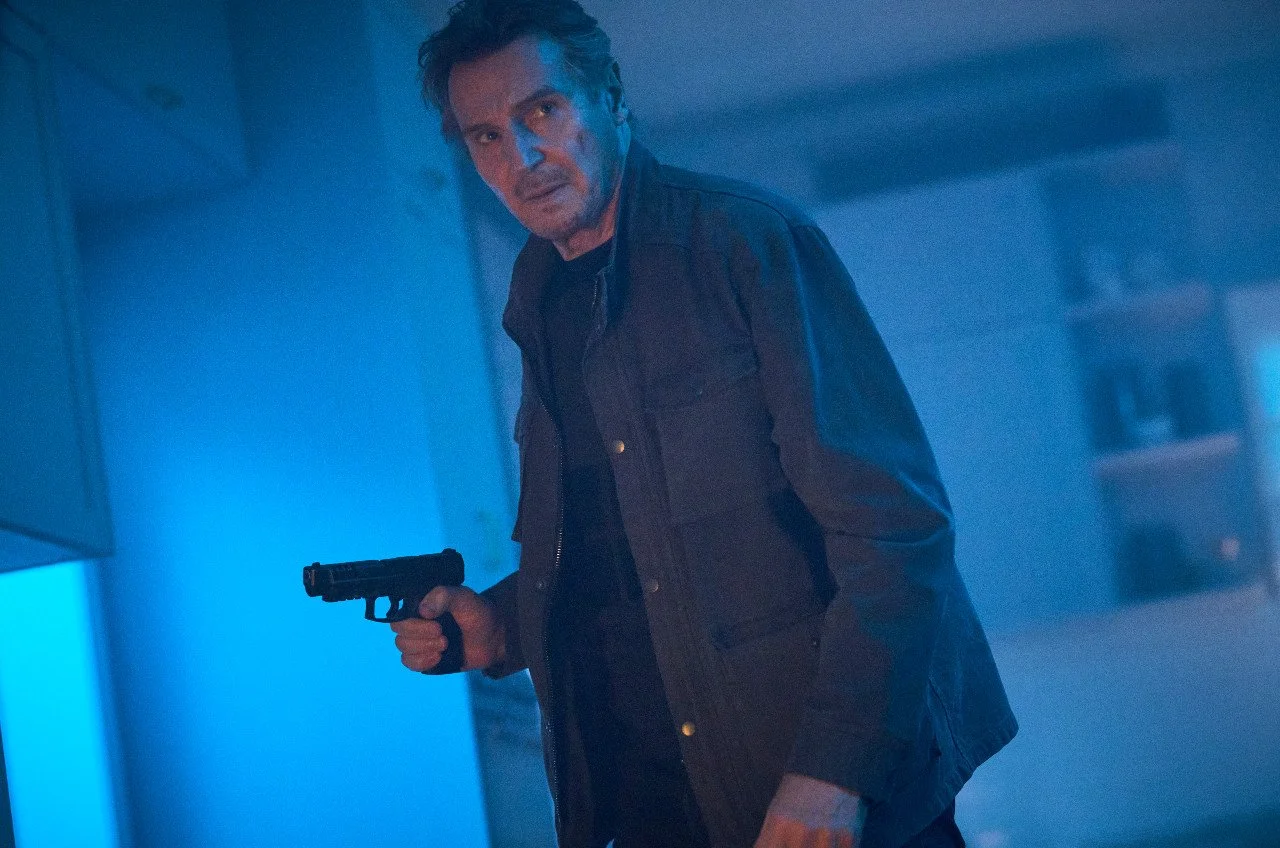Timely Tales of Paranoia: Soderbergh’s Deft Thriller, Kimi, Neeson’s Doleful Blacklight
By Liam Lacey
Kimi
Rating: B+
Blacklight
Rating: D
In the wake of Watergate, Vietnam, and the exposure of CIA and FBI skullduggery, the early-to-mid 1970s was a rich era for movies about conspiracy and corruption: Three Days of the Condor, The Parallax View, The Day of the Jackal, The Odessa File, et al. A political version of the Alfred Hitchcock’s thriller model, they set a pattern for modern thrillers.
Now, in an era to match the political and social crises of a half-century ago, we have simultaneous release of two films that apply 1970s models to current anxieties.
The good one is Kimi, by Stephen Soderbergh, starring Zoë Kravitz as a Seattle tech worker, Angela Childs, who believes she hears something disturbing while monitoring interactions between clients and their digital assistant named Kimi.
This follows a familiar premise (Hitchcock’s Rear Window, Frances Coppola’s The Conversation, and Brian DePalma’s Blow Out) in which the protagonist sees or overhears an apparent crime and struggles to convince their superiors to believe them.
Soderbergh’s version is almost self-consciously updated to standards of current hipness: Angela, who has bright blue hair, wears chic leisure-wear and walks with a straight back and bouncy walk, suggesting a Japanese animated manga character.
She lives in a Seattle loft with brick walls and big windows that you’d probably never want to leave. And in fact, she doesn’t. Her agoraphobia is rooted in anxiety about COVID, but also trauma from an assault for which she’s receiving teletherapy.
From her stylish loft, where she watches neighbours through her window, one of whom is a chubby guy with binoculars who looks like a creep. Another is Terry (Byron Bowers), a lawyer in the local DA’s office, who drops in for occasional booty calls.
Most of what happens in Kimi takes place within that loft, with other characters — Angela’s shrink, her mom (Robin Givens), the unctuous uber-rich founder of Kimi’s parent company (illusionist Derek DelGaudio), appearing on video calls.
When Angela is instructed to come downtown to share her discovery in a meeting with an apparently sympathetic company exec (Rita Wilson) and the FBI, Angela medicates, forces down her panic, and makes her way to the corporate headquarters, where things begin to go seriously haywire.
Kimi is executed with a brisk sketch-like lightness, propelled by a jittery score from Cliff Martinez and pulse-jumping blasts of music from Billy Eilish to The Beastie Boys.
The labyrinthine corridor and street chase scenes can feel a bit familiar, the villains one-dimensional and the resolution satisfyingly corny, but it’s a film that knows what its doing at every step. The camera work suggests but doesn’t over-emphasize surveillance spying (shot by Soderbergh under his pseudonym, Peter Andrews). Kravitz’s performance is minimalist but eminently watchable, and scriptwriter David Koep efficiently collects the contemporary variants of dread in the air, blending them into a sharp nail-biter of a movie.
If Kimi is an object lesson in a topical but brisk entertainment, Blacklight, is the opposite. Liam Neeson’s 12th action film since his career watershed with Taken in 2008 certainly doesn’t shy away from the topical, from Confederate-loving right-wing militia groups, rogue intelligence agencies, and attacks on journalists.
In his second collaboration with director/writer Mark Williams (2020’s The Honest Thief) Neeson plays Travis Block, a late-career tough guy who works for a former Vietnam army buddy, FBI chief Gabriel Robinson (Aidan Quinn), as an off-the-books fixer, extracting under-cover agents from precarious situations.
The opening scenes are deliberately hot-button: A charismatic young Hispanic woman politician, clearly modelled on Alexandra Ocasio-Cortez, is seen speaking at a rally, shortly before she’s assassinated by a hit-and-run driver.
Later, in what looks like a scaled-down version of the January 6, 2021 attack on the U.S. capital, an armed militia group terrifies a couple of cops who are trying to protect a woman from a lynching. Here’s where we first meet Travis in action, as he shows up with enough explosives to distract the mob while he sneaks their target away.
The main story concerns an FBI whistleblower (Taylor John Smith) who decides to go to the press and ends up dead. Travis tries to intimidate, and later starts working with a reporter, Mira (Emmy Raver-Lampan) as they discover the FBI is overseeing a death squad targeting political subversives, modelled on J. Edgar Hoover’s COINTELPRO program.
This brings Travis at odds with his boss, Gabriel, who retaliates by hiding away Travis’s daughter, Amanda (Claire van der Boom) and granddaughter Natalie (Gabriella Sengos), in a witness protection. War is on, though it’s hardly a fair fight. Though Gabe has the resources of the agency behind him, Travis is apparently able to enter the FBI chief’s house at will, where he displays a knack for turning anything into a lethal weapon.
Neeson maintains a certain doleful dignity as an action star who apparently takes no pleasure in his gift for violence, but Blacklight has little else going for it. The action scenes here are either perfunctory or ridiculous, and the acting wavers between over-the-top (Quinn) to lifeless, in delivering the groan-worthy dialogue.
““The United States government is murdering its own citizens!” declares Mira to her boss.
“That is messed up,” concurs a senior editor gravely.
Is it Travis or Neeson talking when the actor observes, glumly, “In hindsight, I suspect I made a poor career choice.”
Kimi. Directed by Steven Soderbergh. Written by David Koepp. Starring Zoë Kravitz, Byron Bowers, Rita Wilson, Robin Givens and Derek DelGaudio. Currently available on Crave/HBO.
Blacklight. Directed by Mark Williams, written by Nick May and Mark Williams. Starring Liam Neeson, Aidan Quinn, Emma Raver-Lampman and Taylor John Smith. In theatres now.


